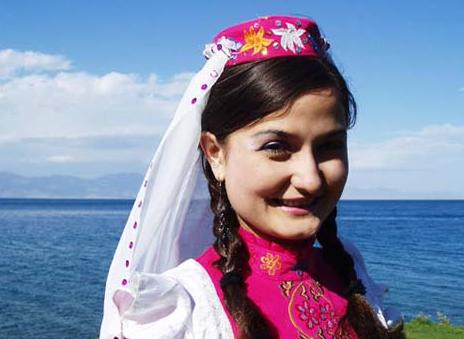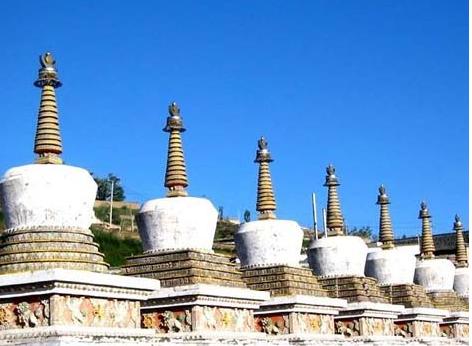
The Tatar ethnic minority live mainly in Yining, Tacheng and Urumqi in the Xinjiang Uygur Autonomous Region. Historically this minority was known as Dada and first was mentioned in the Tang Dynasty (618 - 907). The national census in 2000 recorded 4,890 Tatars.
Language and Character:
The Tatars have their own language which is a member of the Turkic subgroup of the Altaic phylum. They also speak and write Uygur and Kazak due to mixing with these minorities.
Food and Food Customs:
The Tatars are sustained primarily by commerce, supplemented by live stock husbandry, agriculture and handicrafts. They like to eat flour food, meat and milk, often served with rice. The Tatar women are proud of their culinary skills. They bake cakes made of flour, rice, cheese, egg, butter, raisin, etc, and the cakes made of meat and rice. For drink, they brew a honey wine which tastes like beer.
Etiquette is very important for the Tatars. When family members sit at a dining table; the most senior is served first, followed by the rest ordered by age. Dinner is not complete until ended with a prayer. In their daily life, they greet each other by shaking hands; they respect the old people and treat guests warmly; and they do not joke with women, and so on.
Clothes:
The clothes of the Tatar are dainty. Women wear one-piece dress and hat decorated with pearls; even men wear black hats and white shirt both of which are embroidered intricately. Tatar women embroider flower motifs on clothes, pillows, coverlets, table cloths, curtains, and especially wedding dresses.

Customs:
Islam is the major component of Tatar culture, affecting all aspects of their lives. The most important festivals are the Kaizhai Festival, Corban Festival, and Almsgiving Festival.
The Tatars are a lively and vivacious people. They have many distinctive amusements and sports that are held during festivals, such as dance, wrestling, horse racing, and pole climbing.



